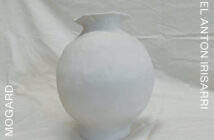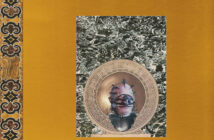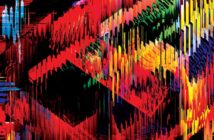
Grace, at least in its religious connotations, generally bespeaks of a free, undeserved gift from God, a state of sanctification enjoyed through divine favor. On a quotidian or everyday level, it has to do with a natural ease and suppleness of bearing – nature’s mute symphony for the eye, or the live ember-eyes of a stranger in the street.
However convenient, Haruka Nakamura’s album for Schole Cultures maintains an equilibrium between these two poles, drawing from each during its nearly fifty minute rumination on all things languorous and red-blooded. Often, in fact, traces from each camp overlap, shift shape, and reassemble themselves as the album winds along. An ambulatory melody churns onward during “Cielo” with all the resignation and peacefulness of someone looking up to the sky, while space is simultaneously opened up for Nakamura to waft and dapple various ambient textures, including some rolling guitar lines that dimly glisten in the background.
Then there are other pieces whose fetching simplicity proves utterly beguiling. The harmonium melody of “Sign” is like a canicular sun, whose pressing warmth leaves little room for questions of personal desire and returns one to the play of the world and its myriad forms.
In keeping with this, hints of premeditated order in the basic trajectory of the tracks are not to be found, and in its humble way, the album may be seen as a contestation of the primacy generally given to such things. The album moves smoothly along overturning itself from spare pieces for piano, augmented only by feint glitches or field recordings, to the dense fug of “Lus”, to haughty, twittering pop numbers like “Ralgo”, or delicate ballads like the slightly melancholic title-track, which plays on subtle shifts in tonal gravity, and which allows ideas to breathe and expand.
The ordering therefore doesn’t turn it into a sort of itinerant clown, nor does it entail the work getting trapped in its own perfect reflection. It displays a sturdy yet flexible foundation; and, in a manner of speaking, it has all the simple yet mysterious charm of a person whose gait all of a sudden becomes the source of endless appeal.
Max Schaefer



